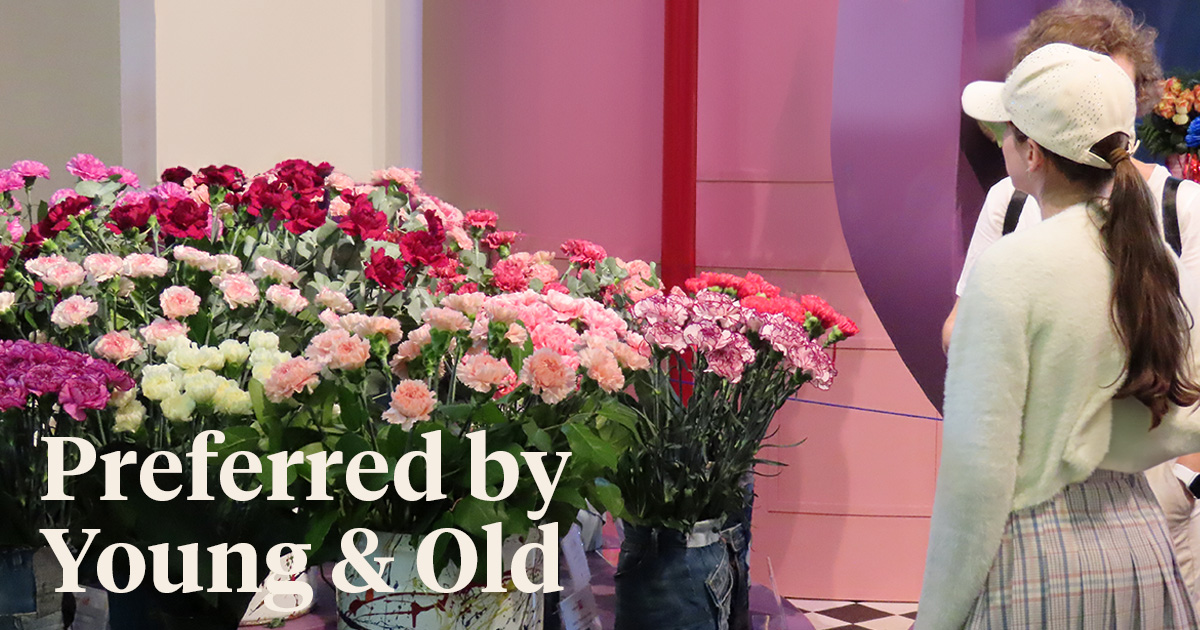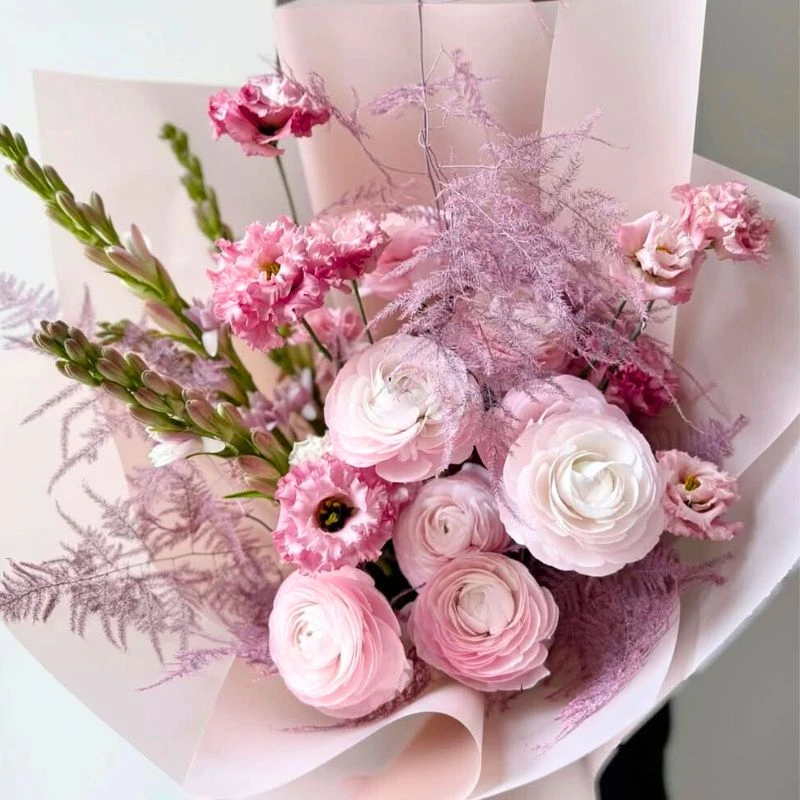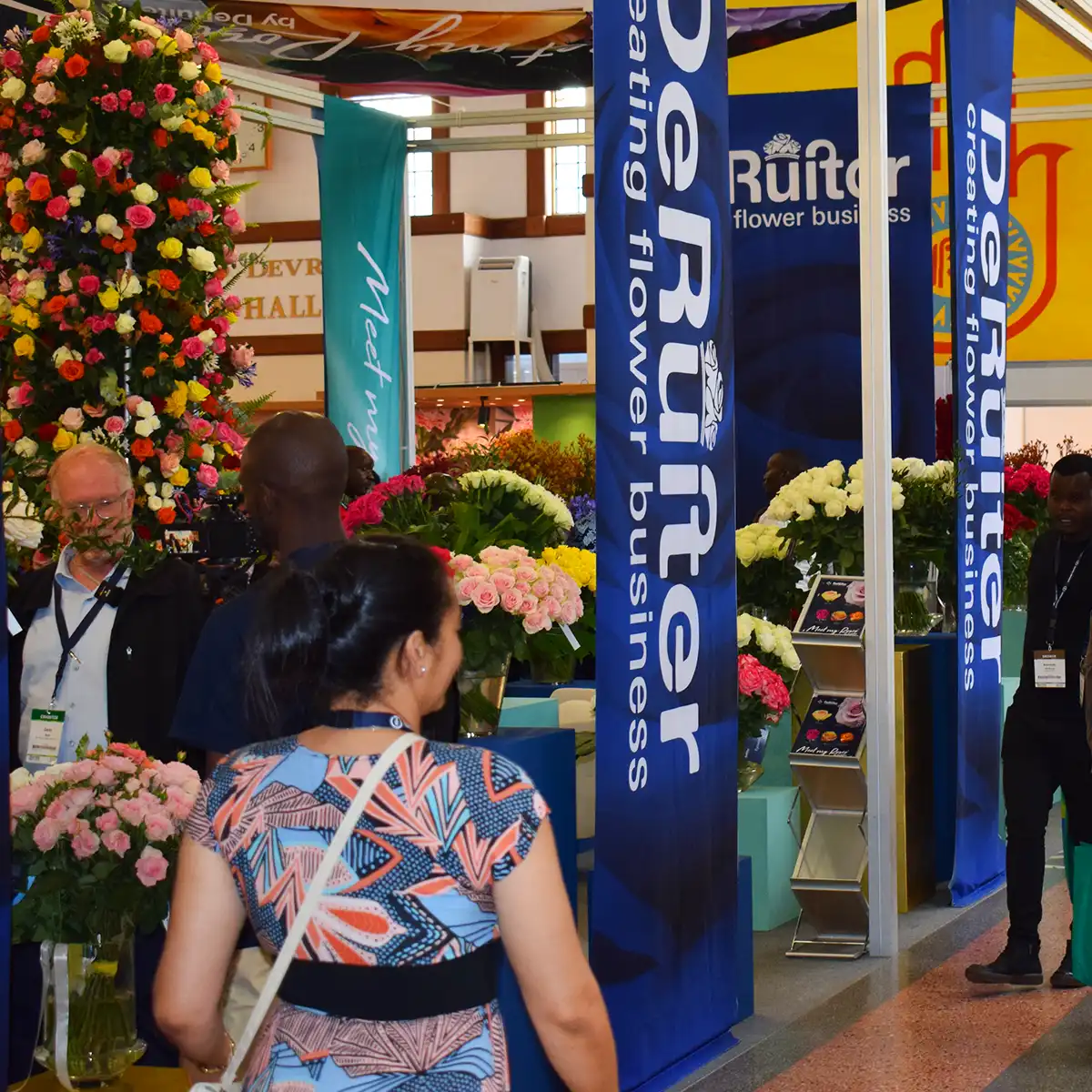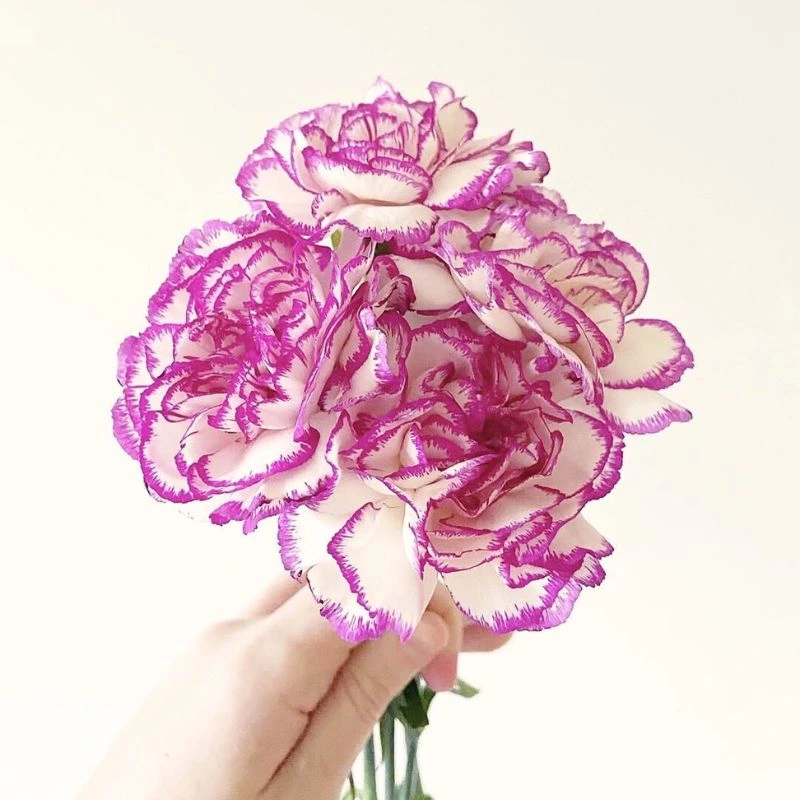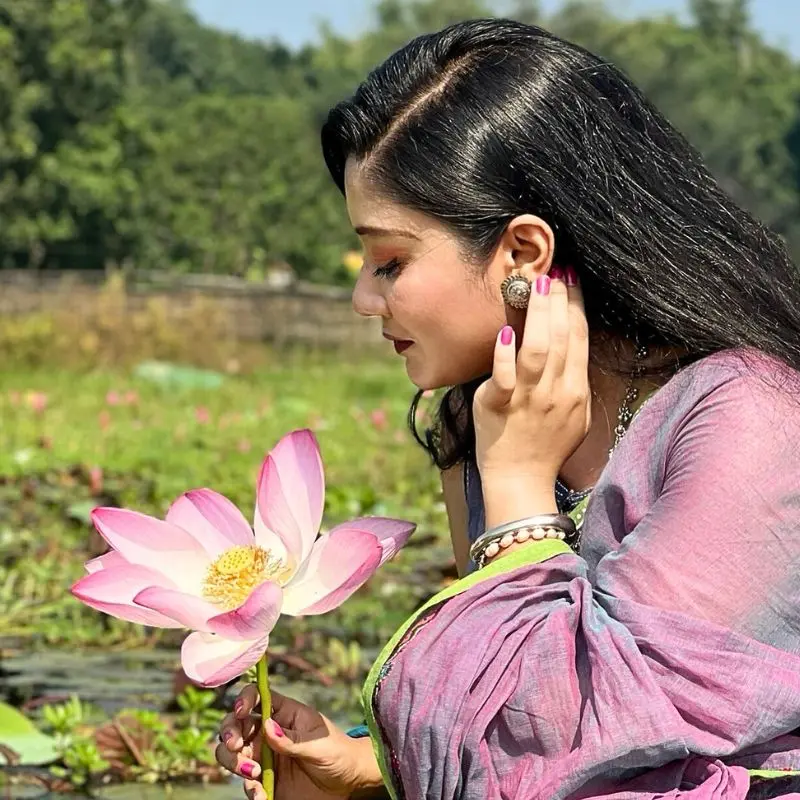What a brilliant name for a carnation grower: Divine Flowers. It's like a cryptogram if you think about it. Arnoud Vooijs, co-owner of Divine Flowers explains:
"The Latin name for carnation is Dianthus, a combination of the Greek words 'Dios' ('God') and 'anthos' ('flower'), so a godly or divine flower. It's that simple"
The name of their company is just one of the conscious decisions made by this grower to produce carnations that are both exclusive and always in high demand.
In this story, you will get to know Divine Flowers and learn about the role they play in the European market and the Keukenhof Carnation Show.
Keukenhof Carnation Show
It's the last weekly show during the eight Keukenhof opening weeks: the annual Carnation Show. Of course, the most beautiful spring garden in the world has a continuous display of bulb flowers, like tulips, hyacinths, narcissus, fritillaria, muscari, and alliums. There are also long-lasting shows with orchids and summerflowers. And every single week there is a special flower show at the Oranje Nassau Pavilion where the visitors can marvel at the most beautiful and special cut flowers, like roses, calla lilies, alstroemerias, and... carnations!


Noblesse oblige when you are the biggest grower in the Netherlands. Divine Flowers has participated in the Keukenhof Carnation Show for as long as Arnoud can recall. For this grower is it a wonderful week to show to a big audience — on average 27,000 people visit Keukenhof daily — the beauty and diversity of this flower. People see these flowers in a nice setting, take these images home, and hopefully get inspired to ask for carnations with their next flower purchase.
The carnation is, in a way, an odd flower in the market, Arnoud Vooijs explains. On one hand, it is worldwide — after the rose — the 2nd most grown and sold cut flower. So, every person on this planet who loves flowers knows this flower. On the other hand, the demographic segment of the market that still buys this flower consisted of elderly people for a long time, making it — for many younger people — an old-fashioned flower. But this is changing rapidly for two reasons.
Arnoud:
"Young people are buying more carnations again. I believe that fashion skips a generation and then returns in an altered form. With carnations this is surely true, because it works like this: If your grandmother was fond of carnations, your mother probably would not be. But you, as a son or daughter will love these flowers, because children copy their grandparents' preferences and rebel against their parents' behavior.
And the carnation itself has been evolving to make it a staple flower for a new generation. Just look at the shapes and colors. There are super cute tiny varieties with bright colors that resemble the sweet William (Dianthus barbatus), such as the pink Carnation Fiorino Iris, Fiorino Value, or the Spray Carnation Lilliput Lavender. There are also the out-of-the-ordinary red Spray Carnation Cherryfly and of course big standard flowers, like the new Dianthus Fiorino Value."
So, that's why the slogan of Divine Flowers is: 'The next generation of carnation'. That makes sense, right?


Divine Flowers
On a global scale, Divine Flowers may not be one of the biggest growers, but in the Netherlands they produce half of all carnations, making it the biggest European grower at this moment. The trade company and brand name were founded in 2017 when two renowned growers Nieuwland and Martin Zwinkels started a close collaboration to share knowledge about cultivation and market their flowers.
In sheer numbers, Divine Flowers cannot — and does not want to — compete with mass-production countries like Kenya, Colombia, and Turkey. However, when it comes to the diversity of the varieties and getting the ultimate quality Arnoud and his team are assured that their company is at the very top of the market.
Arnoud:
"This year we grow around 130 different varieties — both standard and spray carnations — on approximately 4 hectares all in the Netherlands. Although Divine Flowers sounds very international, we are 100% Dutch.
We have all colors, all shapes, and many novelties. We introduce every year around 10 to 15 new varieties. These flowers are not grown for supermarket bouquets, but really for the higher segments, like florists and event designers in Europe, and occasionally to the US and the Far East."

The Beauty of the Carnation
Carnations pack quite a charm, don’t they? They're one of those flowers that might not shout from the rooftops but definitely have their share of admirers. So, what's the draw?
Arnoud:
"Carnations are a living flower, they have a kind of movement in them. The process from a half-open flower to the full-blooming stage makes you connect with this flower and connect with nature as a whole. The divine Dianthus is the flower of the goods, probably also because of its majestic blooming.
Next to that, the flower is super strong and versatile. These blooms can last a long time even after being cut, which is great both for florists looking to keep their stock longer and for customers wanting to enjoy their floral arrangements a bit more.
They come in a palette of colors, from soft pastels to deeper hues, making them a good fit for all sorts of floral designs. Whether it’s a trendy field bouquet, a wedding bouquet, a funeral wreath, or a simple vase at home, they slip right into any setting."
Then, there's the symbolism. Carnations carry a load of meanings — from love and fascination to distinction and charm. This makes them suitable for different occasions, from Mother’s Day (did you know they’re traditionally worn and given on this day in many places?) to graduations.


So whether it’s their look, their lasting power, or their symbolism, carnations have quite a bit to offer. No wonder they’ve got their own fan club among florists and flower lovers old and young alike.
Divine Flowers' slogan 'The next generation of carnation' clearly hints not only to the flower itself but also to the next generation of people discovering the Dianthus as a favorite flower.

